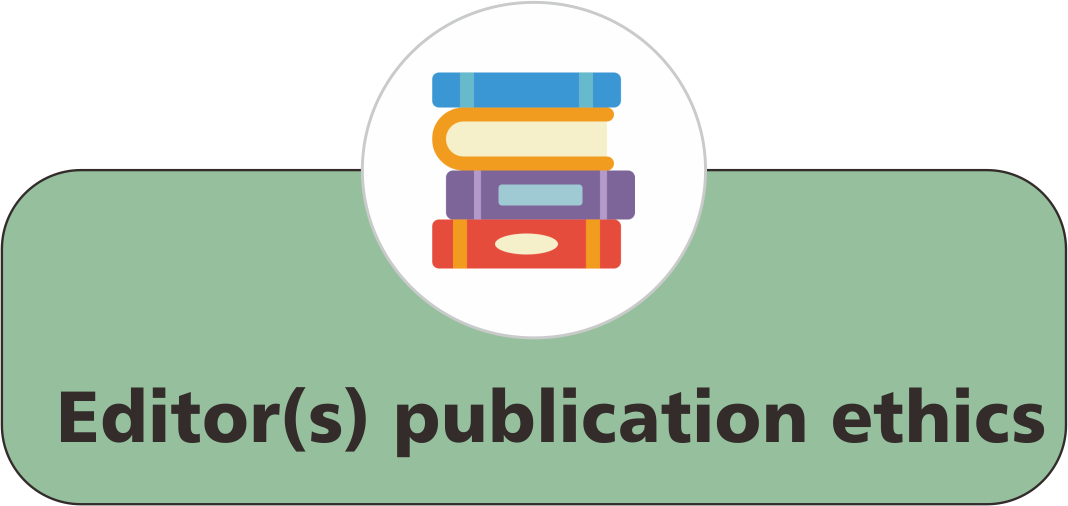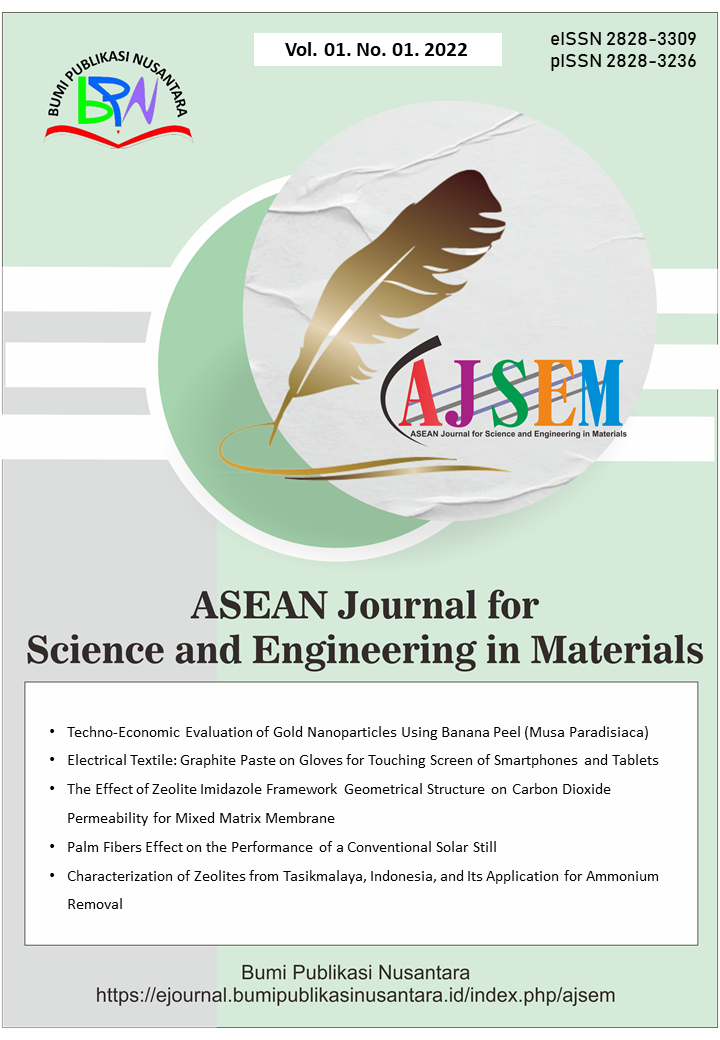Uncovering the Full Potential Utilization of Petroleum Reserves Residue for Sustainable Energy Supply
 ), Luqman Hakeem(2), Muhammad Junaid Ali(3), Muhammad Shakir Hussain(4),
), Luqman Hakeem(2), Muhammad Junaid Ali(3), Muhammad Shakir Hussain(4),
(1) Yewon Arts University
(2) Politecnico di Torino
(3) Pakistan Institute of Engineering and Applied Sciences
(4) Sungkyunkwan University
 Corresponding Author
Corresponding Author
Abstract
Keywords
References
Ahmad, W., Hassan, M., Masud, S. F. B., Amjad, M. S., Samara, F., Anwar, M., Rafique, M. Z. and Nawaz, T. (2024). Socio-economic benefits and policy implications of generating sustainable energy from municipal solid waste in Pakistan. Energy and Climate Change, 5, 100124.
Ahmed, S., Bibi, S. S., Irshad, M., Asif, M., Khan, M. K., and Kim, J. (2024). Synthesis of long-chain paraffins over bimetallic Na–Fe0. 9Mg0. 1Ox by direct CO2 hydrogenation. Topics in Catalysis, 67(5), 363-376.
Al Khourdajie, A., Skea, J., and Green, R. (2024). Climate ambition, background scenario or the model? Attribution of the variance of energy-related indicators in global scenarios. Energy and Climate Change, 5, 100126.
Alevenda, A. M., Behrsin, I., and Disano, F. (2021). Renewable energy for whom? A global systematic review of the environmental justice implications of renewable energy technologies. Energy Research and Social Science, 71, 101837.
Asif, M., Bibi, S. S., Ahmed, S., Irshad, M., Hussain, M. S., Zeb, H., Khan, M. K., and Kim, J. (2023). Recent advances in green hydrogen production, storage and commercial-scale use via catalytic ammonia cracking. Chemical Engineering Journal, 145381.
Asif, M., Hussain, M. A., Riaz, A., Mujahid, R., Akram, M. S., Haider, B., Kanwal, S., and Zeb, H. (2023). A physical coal cleaning approach for clean energy production from low grade Lakhra coal of Pakistan using diester table. Journal of the Pakistan Institute of Chemical Engineers, 51(2), 1-9.
Asif, M., Saleem, S., Tariq, A., Usman, M., and Haq, R. A. U. (2021). Pollutant emissions from brick kilns and their effects on climate change and agriculture. ASEAN Journal of Science and Engineering, 1(2), 135-140.
Asif, M., Salman, M. U., Anwar, S., Gul, M., and Aslam, R. (2022). Renewable and non‐renewable energy resources of Pakistan and their applicability under the current scenario in Pakistan. OPEC Energy Review, 46(3), 310-339.
Asif, M., Shafiq, M., Imtiaz, F., Ahmed, S., Alazba, A. A., Hussain, H. N., Butt, F. N., Zainab, S. A., Khan, M.K. and Bilal, M. (2024). Photocatalytic Degradation of Methyl Orange from Aqueous Solution Using ZnO by Response Surface Methodology. Topics in Catalysis, 2024, 1-9.
Asif, M., Sharf, B., and Anwar, S. (2020). Effect of heavy metals emissions on ecosystem of Pakistan. Indonesian Journal of Social and Environmental Issues (IJSEI), 1(3), 160-173.
Batel, S. (2020). Research on the social acceptance of renewable energy technologies: Past, present and future. Energy Research and Social Science, 68, 101544.
Buechler, S., and Martínez-Molina, K. G. (2021). Energy justice, renewable energy, and the rural-urban divide: Insights from the Southwest US. Energy and Climate Change, 2, 100048.
Chen, J. M. (2021). Carbon neutrality: Toward a sustainable future. The Innovation, 2(3), 100127.
Chen, S., Qiu, L., and Cheng, H. M. (2020). Carbon-based fibers for advanced electrochemical energy storage devices. Chemical Reviews, 120(5), 2811-2878.
Donald, A. N., Asif, M., and Felicien, S. (2022). A review on the centralised municipal sewage and wastewater treatment unit processes. MOJ Ecology and Environmental Sciences, 7(2), 31-38.
Hassan, A. M. M., Asif, M., Al-Mansur, M. A., Uddin, M. R., Alsufyani, S. J., Yasmin, F., and Khandaker, M. U. (2023). Characterization of municipal solid waste for effective utilization as an alternative source for clean energy production. Journal of Radiation Research and Applied Sciences, 16(4), 100683.
Hosseini, S. H., Shakouri, H., and Kazemi, A. (2021). Oil price future regarding unconventional oil production and its near-term deployment: A system dynamics approach. Energy, 222, 119878.
Isaac, O. T., Pu, H., Oni, B. A., and Samson, F. A. (2022). Surfactants employed in conventional and unconventional reservoirs for enhanced oil recovery—A review. Energy Reports, 8, 2806-2830.
Kahraman, H., and Akın, Y. (2024). Recent studies on proton exchange membrane fuel cell components, review of the literature. Energy Conversion and Management, 304, 118244.
Kareem, K., Rasheed, M., Liaquat, A., Hassan, A. M. M., Javed, M. I., and Asif, M. (2022). Clean energy production from jatropha plant as renewable energy source of biodiesel. ASEAN Journal of Science and Engineering, 2(2), 193-198.
Khan, M. K., Cahyadi, H. S., Kim, S. M., and Kim, J. (2019). Efficient oil recovery from highly stable toxic oily sludge using supercritical water. Fuel, 235, 460-472.
Khan, M. K., Insyani, R., Lee, J., Yi, M., Lee, J. W., and Kim, J. (2016). A non-catalytic, supercritical methanol route for effective deacidification of naphthenic acids. Fuel, 182, 650-659.
Khan, M. K., Kwek, W., and Kim, J. (2017). Upgrading heavy crude oils and extra heavy fractions in supercritical methanol. Energy and Fuels, 31(11), 12054-12063.
Khan, M. K., Sarkar, B., Zeb, H., Yi, M., and Kim, J. (2017). Simultaneous breaking and conversion of petroleum emulsions into synthetic crude oil with low impurities. Fuel, 199, 135-144.
Khan, M. S., Asif, M. I., Asif, M., Khan, M. R., Mustafa, G., and Adeel, M. (2024). Nanomaterials for the Catalytic Degradation and Detection of Microplastics: A Review. Topics in Catalysis, 2024, 1-18.
Kim, H., McJeon, H., Jung, D., Lee, H., Bergero, C., and Eom, J. (2022). Integrated assessment modeling of Korea's 2050 carbon neutrality technology pathways. Energy and Climate Change, 3, 100075.
Kwek, W., Khan, M. K., Sarkar, B., and Kim, J. (2018). Supercritical methanol as an effective medium for producing asphaltenes-free light fraction oil from vacuum residue. The Journal of Supercritical Fluids, 133, 184-194.
Kwek, W., Khan, M. K., Sarkar, B., Insyani, R., Yi, M., and Kim, J. (2017). A non-catalytic, supercritical methanol route for producing high-yield saturated and aromatic compounds from de-oiled asphaltenes. The Journal of Supercritical Fluids, 120, 140-150.
Liang, X., Tian, Y., Yuan, Y., and Kim, Y. (2021). Ionic covalent organic frameworks for energy devices. Advanced Materials, 33(52), 2105647.
McCulloch, M. T., Winter, A., Sherman, C. E., and Trotter, J. A. (2024). 300 years of sclerosponge thermometry shows global warming has exceeded 1.5 C. Nature Climate Change, 14(2), 171-177.
Olabi, A. G., Abbas, Q., Al Makky, A., and Abdelkareem, M. A. (2022). Supercapacitors as next generation energy storage devices: Properties and applications. Energy, 248, 123617.
Podder, J., Patra, B. R., Pattnaik, F., Nanda, S., and Dalai, A. K. (2023). A review of carbon capture and valorization technologies. Energies, 16(6), 2589.
Pramuanjaroenkij, A., and Kakaç, S. (2023). The fuel cell electric vehicles: The highlight review. International Journal of Hydrogen Energy, 48(25), 9401-9425.
Raihan, A., Muhtasim, D. A., Farhana, S., Pavel, M. I., Faruk, O., Rahman, M., and Mahmood, A. (2022). Nexus between carbon emissions, economic growth, renewable energy use, urbanization, industrialization, technological innovation, and forest area towards achieving environmental sustainability in Bangladesh. Energy and Climate Change, 3, 100080.
Rubio-Jimenez, C. A., Ramirez-Olmos, C., Lopez-Perez, A. C., Perez-Pantoja, A. L., Zanor, G. A., and Segoviano-Garfias, J. D. J. N. (2023). The controlled incineration process as an alternative to handle MSW and generate electric energy in the state of Guanajuato, Mexico. Energy and Climate Change, 4, 100102.
Shao, B., Zhang, Y., Sun, Z., Li, J., Gao, Z., Xie, Z., Hu, J., and Liu, H. (2022). CO2 capture and in-situ conversion: recent progresses and perspectives. Green Chemical Engineering, 3(3), 189-198.
Sharma, N., Lemar, P., and Nimbalkar, S. (2024). Wastewater hydrogen nexus (WwHeN): Greening the wastewater industry via integration with the hydrogen economy✰. Energy and Climate Change, 5, 100145.
Shen, H., del Granado, P. C., Jorge, R. S., and Löffler, K. (2024). Environmental and climate impacts of a large-scale deployment of green hydrogen in Europe. Energy and Climate Change, 5, 100133.
Suman, A. (2021). Role of renewable energy technologies in climate change adaptation and mitigation: A brief review from Nepal. Renewable and Sustainable Energy Reviews, 151, 111524.
Talapaneni, S. N., Singh, G., Kim, I. Y., AlBahily, K., Al‐Muhtaseb, A. A. H., Karakoti, A. S., Tavakkoli, E. and Vinu, A. (2020). Nanostructured carbon nitrides for CO2 capture and conversion. Advanced Materials, 32(18), 1904635.
Xia, Q., Zhang, K., Zheng, T., An, L., Xia, C., and Zhang, X. (2023). Integration of CO2 Capture and Electrochemical Conversion: Focus Review. ACS Energy Letters, 8(6), 2840-2857.
Zhang, G., Qu, Z., Tao, W. Q., Mu, Y., Jiao, K., Xu, H., and Wang, Y. (2024). Advancing next-generation proton-exchange membrane fuel cell development in multi-physics transfer. Joule, 8(1), 45-63.
Zhao, X., Ma, X., Chen, B., Shang, Y., and Song, M. (2022). Challenges toward carbon neutrality in China: Strategies and countermeasures. Resources, Conservation and Recycling, 176, 105959.
Article Metrics
Abstract View : 650 times
: 650 times Download : 207 times
Download : 207 times
Refbacks
- There are currently no refbacks.
Copyright (c) 2024 Bumi Publikasi Nusantara

This work is licensed under a Creative Commons Attribution-ShareAlike 4.0 International License.









